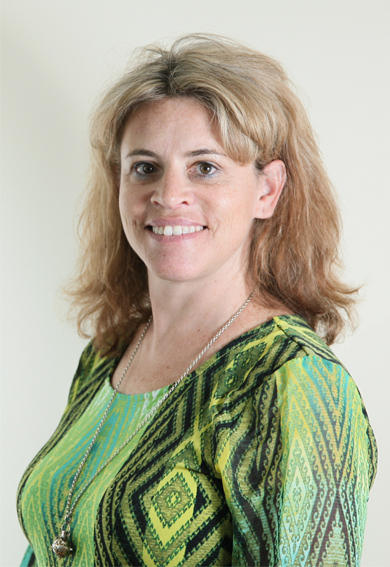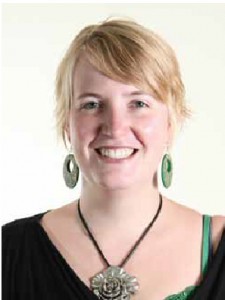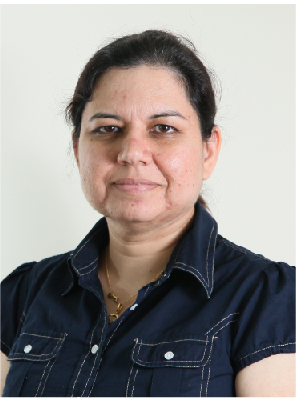SENIA is a network of educators, professionals and parents across Asia dedicated to supporting children with special learning needs. SENIA 11, 2013 was hosted by Jakarta International School. Specialists from The Essential Learning Group would like to share their comments brought back from SENIA 11:
This February, I had the pleasure of attending my fourth Special Education Network in Asia (SENIA) conference in Jakarta, Indonesia. More than 150 teachers, special educators and parents gathered to learn and share ideas. It was one of the best conferences I have attended.
Dr. Kevin Feldman’s presentation made a particularly strong impact on me. He emphasized the importance of engagement – the process by which we actively involve our students in learning. “Engagement includes observable evidence of learners’ interest and active involvement in all lesson content and related tasks,” he said.
He described a scene familiar to all of us: a teacher at the front of a classroom poses a question to a group of students. Hands rise, and the teacher chooses one of them to give an answer for the consideration of the group. It is easy to see that some children do not benefit from this model. Imagine a child anxious about being called on, dreading the moment when they may have to speak, and as a result not focusing on the lesson.
There is a better way, Dr. Feldman tells us: “EVERYONE DOES EVERYTHING.” First he says, allow your students “think time,” and then ask neighbors to share their thoughts. Everybody speaks, and nobody is unduly singled out. What a great way to involve students and build self-esteem.
Shari Rosen, PhD
Company Founder, Speech-Language Pathologist
Before coming to Shanghai, Shari worked at the University of Washington. She co-founded The Essential Learning Group in 2006, and consults with major international schools and local organizations in China to help educators better understand the needs of each individual child.
There were two sides to my visit to SENIA in Jakarta. On the one hand, it was a great opportunity to meet and catch up with both new and familiar colleagues from around Asia. I had the opportunity to attend numerous seminars and workshops — as many presented by experts from Asia as from Europe and North America. I was exposed to valuable ideas that we can apply in our Clinic in Shanghai.
On the other hand, the conference reminded me of how valuable our resources in Shanghai are. Whereas for most attendees, SENIA represented the one and only networking and professional development opportunity this year, I have opportunities to attend workshops and seminars on an almost weekly basis. I meet and confer with colleagues at ELG, at international schools and other service providers frequently.
I suppose it is an experience similar to moving abroad: sometimes you need a change of environment in order to appreciate what you have back home. Nevertheless, I look forward to SENIA ’14 in Singapore. A change of environment is always an enlightening experience.
Karlijn Jacobs-de Hoon, M.Sc.
Global Outreach Director
Karlijn was an independent practitioner in the Netherlands before coming to Shanghai in 2010. Her extensive knowledge of children’s development makes her a valuable resource to parents in determining how best to address their children’s learning needs.
Six specialists from ELG joined the Special Education Network in Asia (SENIA) conference in Jakarta, Indonesia. SENIA presents a great setting for attendees to talk and learn from one another, to network and share our knowledge and passion.
The conference addressed an array of major topics in special education, such as technology and education, engagement in the classroom and executive functioning. I found the discussion of executive functioning to be particularly valuable. How do executive functioning capacities develop in young brains? What can you expect from children of certain ages, and as educators, how can we facilitate its development?
Dr. Feldman’s lecture on classroom engagement was passionate and informative. I expect to use many of the techniques he shared for encouraging full, active engagement from all of my students and methods for checking with the class to ensure that everybody remains engaged with the material. It seems that new and interesting technologies have a significant role to play in keeping students engaged, but there was also a consensus that it is important use technology as a tool, and not to allow its application to overshadow other methods of teaching.

Femke Okkerse
School Psychologist
Femke is originally from the Netherlands, and has extensive experience working with children ages 4 to 16. She is also registered with the Dutch group of pedagogues (NVO) to provide services and diagnostics.
The SENIA conference was a remarkable experience. Being surrounded by advocates for children with special needs felt overwhelming. It was gratifying to have discussions with people whose values and experiences were so like mine. Their stories brought both comfort and valuable insight. Meeting with fellow educators offered the unexpected bonus of clarifying the value of my own experiences for me as I shared them with others.
Of everything I learned, the material on ‘social thinking’ is the most significant. Engaging the topic in-depth has reinforced for me the connections between social thinking, the development of social skills and academic learning. It also helped me to understand the children I work with. They do not have the intrinsic capacity to build up social skills, so they must be taught. In fact, ‘social skills’ is a subject my class. With this deeper understanding, I can implement the curriculum with renewed energy and insight.

Katherine Abadilla
Program Leader
Katherine came to Shanghai in 2009 to study Mandarin on a scholarship at Fudan University, and is originally from the Philippines. She has been providing educational support at The Essential Learning Group since March 2010.
Matt Barker’s session, “60+ Dyslexia Tips” was extremely useful to me, because I work with many students who struggle with reading. He listed all the areas of reading that are affected by dyslexia, such as:
- Phonological awareness
- Reading
- Writing
- Accessing Alphabetic Code
- Working and Verbal Memory
- Handwriting
- Spelling
- Rapid Renaming
- Visual Perception
In The session, Mr. Barker presented strategies to address every one of these difficulties. Many were familiar, but several interesting new techniques stood out.
Among these:
- Unfix cubes and rods to count syallables and to physically separate on set and rhyme.
- Provide three pictures, two of which represent words that rhyme. Ask students to pick the non-rhyming picture out of the set.
- Place tactile alphabets on an arc. This type of visual formation helps with motor memory in locating individual letters. Fascinating!
- Use dyslexia-friendly dictionaries.
- Use an A4 folder as a slantboard to improve sightlines.
- Use TRUGS (Teach Reading Using Games). He says this system is very valuable for teaching word family skills.
Thanks to Mr. Barker for sharing these techniques with the conference. My students will surely benefit.
Mahpara “Mana” Siddiqui, M.Ed.
Learning Support Specialist, Reading Specialist
Mana is a Learning Support Specialist, and has experience with children of all ages and cultural backgrounds. She helps to develop education plans tailored to children’s needs.
This year, I had the opportunity to attend the Special Education Network in Asia (SENIA) conference in Jakarta, Indonesia. It was amazing to connect with like-minded, equally passionate professionals in my field.
Dr. Kevin Feldman of U.C. Riverside presented a workshop I found to be particularly interesting. He posits that learning is an active process, and that student engagement is not a choice, but rather something to be fostered and cultivated. Students should take an active role in their learning process through various forms of speaking, writing and doing.
The “two-to-ten” rule is an interesting example the teaching practices he advocates. Teachers should not let two to ten minutes of lesson time pass without bringing the students speak about the subject, write about it or perform an activity concerning the subject. Whether it is appropriate to elicit participation every two minutes or every ten minutes depends largely on the age and maturity of the students.
As Dr. Feldman reiterated that engagement is the key to learning, I recalled something mentors in the past had taught me well: “Learning is a verb.”

Jose Tapia
Educational Psychologist
Jose has worked as an Educational Specialist in the United States since 2009. He also has his Teaching License in Moderate to Severe disabilities with Autism Authorization.



